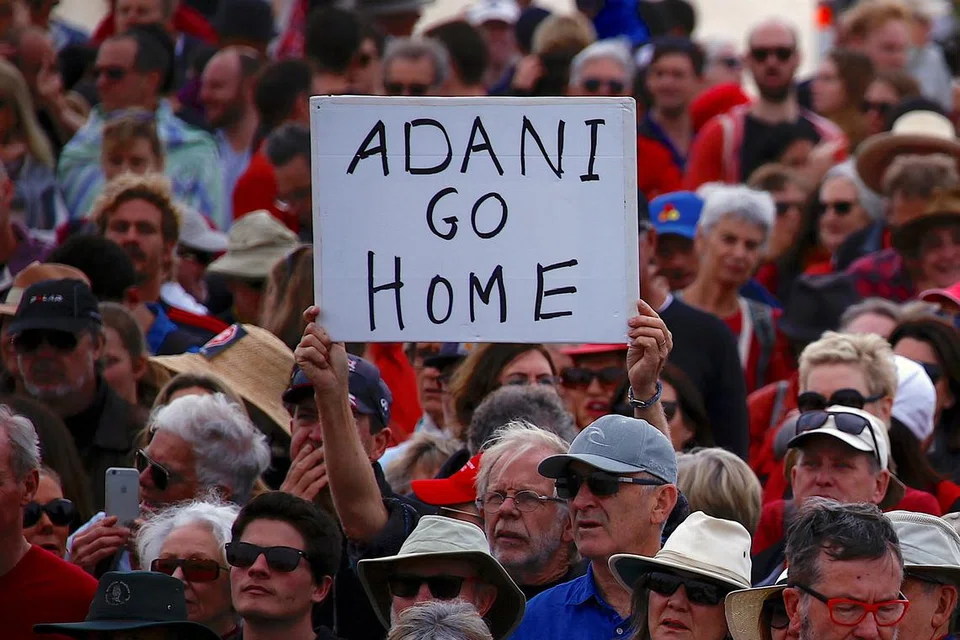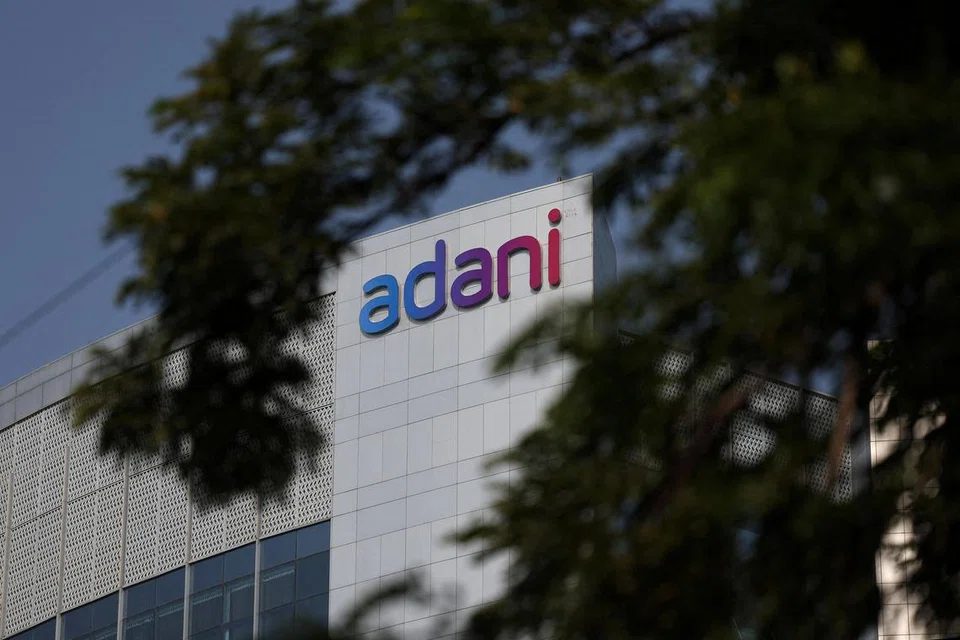Whistleblower Documents Reveal SEBI’s Chairperson Had Stake In Obscure Offshore Entities Used In Adani Money Siphoning Scandal
August 10, 2024
Background: 18 Months Since Our Adani Report, SEBI Has Shown A Surprising Lack Of Interest In Adani’s Alleged Undisclosed Web Of Mauritius And Offshore Shell Entities
It has been nearly 18 months since our original report on the Adani Group presented overwhelming evidence that the Indian conglomerate was operating “the largest con in corporate history”. Our
report exposed a web of offshore, primarily Mauritius-based shell entities used for suspected billions of dollars of undisclosed related party transactions, undisclosed investment and stock manipulation.
Since then, despite the evidence, along with over 40 independent media
investigations corroborating and expanding on our original work, Indian securities regulator SEBI has taken no public action against the Adani Group.
[1] Media has
reported that SEBI is likely to impose mere token, technical violations on the Adani Group despite the breadth and magnitude of the issues.
Instead, on June 27th, 2024, SEBI sent
us an
apparent ‘show cause’ notice. SEBI did not allege any factual errors in our 106-page analysis, but instead claimed the disclosure around our short position– which we disclosed repeatedly– was deficient, arguing that we should have provided even
more robust disclosure. [
1,
2]
The SEBI notice also claimed our report was “reckless” for quoting a banned broker with specific experience dealing with SEBI who detailed how the regulator was fully aware that firms like Adani used complex offshore entities to flout rules, and that the regulator participated in the schemes.
In our July 2024
response to the ‘show cause’ notice, we wrote that we found it odd how SEBI—a regulator specifically set up to
prevent fraudulent practices – showed little interest in meaningfully pursuing the parties that ran a secret offshore shell empire engaging in billions of dollars of undisclosed related party transactions through public companies while propping up its stocks through a network of sham investment entities.
The Indian Supreme Court said that SEBI had
drawn a blank in its investigation of these shareholders, as detailed in the court records. In late June 2024, Adani CFO Jugeshinder Singh
described some regulator notices aimed towards Adani Group as “trivial”, apparently writing off the prospect of their severity even before the process was concluded.
Background: “IPE Plus Fund” Is A Small Offshore Mauritius Fund Set Up By An Adani Director Through India Infoline (IIFL), A Wealth Management Firm With Ties To The Wirecard Scandal
Vinod Adani – Brother Of Gautam Adani – Used This Structure To Invest In Indian Markets With Funds Allegedly Siphoned From Over Invoicing Of Power Equipment To The Adani Group
As detailed in our original Adani
report, documents from the Directorate of Revenue Intelligence (DRI) alleged that Adani “grossly” overvalued the import valuation of key power equipment, using offshore shell entities to siphon and launder money from the Indian public. [
1]
A subsequent
investigation by non-profit project Adani Watch in December 2023 showed how a web of offshore entities, controlled by Gautam Adani’s brother, Vinod Adani, were recipients of funds from the alleged over-invoicing of power equipment.
In one complex structure, a Vinod Adani controlled company had invested in “Global Dynamic Opportunities Fund” (“GDOF”) in Bermuda, a British overseas territory and tax haven, which then invested in IPE Plus Fund 1, a fund registered in Mauritius,
another tax haven.
(Source:
Adani Watch)
A separate investigation by the
Financial Times showed that the parent fund of GDOF – the Bermuda-based Global Opportunities Fund (“GOF”) – was used by two Adani associates “to amass and trade large positions in shares of the Adani Group”.
These nested funds are managed by
Indian Infoline (“IIFL”), now called
360 One per private fund data and IIFL’s marketing material. [
1,
2]
IIFL, is a publicly listed wealth management firm in India which has a long history in setting up
convoluted fund structures and with previous ties to the
Wirecard scandal, Germany’s
largest ever fraud case.
[2] IIFL Wealth was alleged to have
committed fraud in a takeover deal involving Wirecard, using a Mauritius fund structure, per a
lawsuit in UK courts.
(Source:
Financial Times)
Sitting below GDOF in the multi-layer structure (two layers below the Global Opportunities Fund), is the IPE Plus fund, a small and obscure offshore fund registered in Mauritius. The IPE Plus Fund had only U.S. $38.43 million in assets under management (AUM) at the end of December 2017, per IIFL
disclosures.
AdaniWatch
reported that “by March 2017, ATIL, a Vinod Adani company, had a total balance of $40.38 million with GDOF”. Thus, while we are unable to see the total assets of parent fund GDOF, it appears a significant portion of the assets of the funds may be comprised of Adani money.
Beyond being used as an alleged funnel for Vinod Adani’s money, the tiny fund had other close ties to Adani. The Founder and Chief Investment Officer (CIO) of the IPE Plus Fund was Anil Ahuja, per his
biography. At the same time, Ahuja was a
director of Adani Enterprises where he served three terms spanning nine years ending in June 2017, per his
biography and exchange
disclosures. Prior to that he was a
director of Adani Power. [
Pg. 5]
Whistleblower Documents Show That Madhabi Buch, The Current Chairperson Of SEBI, And Her Husband Had Stakes In Both Obscure Offshore Funds Used In The Adani Money Siphoning Scandal
We had previously
noted Adani’s total confidence in continuing to operate without the risk of serious regulatory intervention, suggesting that this may be explained through Adani’s relationship with SEBI Chairperson, Madhabi Buch.
(Source:
Hindu Business Line)
What we hadn’t realized: the current SEBI Chairperson and her husband, Dhaval Buch, had hidden stakes in the exact same obscure offshore Bermuda and Mauritius funds, found in the same complex nested structure, used by Vinod Adani.[3]
Madhabi Buch and her husband Dhaval Buch first appear to have opened their account with IPE Plus Fund 1 on June 5th, 2015 in Singapore, per whistleblower documents.
A declaration of funds, signed by a principal at
IIFL states that the source of the investment is “salary” and the couple´s net worth is estimated at $10 million.
(Source: Whistleblower documents)
Madhabi Buch was appointed a “Whole Time Member” of SEBI in April 2017, according to her
LinkedIn profile.
(SEBI Chairperson Madhabi Buch’s
LinkedIn)
On March 22nd, 2017, just weeks ahead of that politically sensitive appointment, Madhabi’s husband, Dhaval Buch, wrote to Mauritius fund administrator Trident Trust, according to documents we received from a whistleblower. The email was regarding his and his wife’s investment in the Global Dynamic Opportunities Fund (“
GDOF”).
In the letter, Dhaval Buch requested to “be the sole person authorised to operate the Accounts”, seemingly moving the assets out of his wife’s name ahead of the politically sensitive appointment.
(Source: Whistleblower documents)
In a later account statement dated February 26th, 2018, addressed to Madhabi Buch’s private email, the full details of the structure are revealed: “GDOF Cell 90 (IPEplus Fund 1)”. Again, this is the exact same
Mauritius-registered “cell” of the fund, found several layers deep in a convoluted structure, reportedly used by Vinod Adani.
[4]
The total value of Buch’s stake was worth U.S. $872,762.25 at the time.
(Source: Whistleblower documents)
Later, on February 25th, 2018,
during Buch’s tenure as a Whole-Time Member of SEBI, whistleblower documents show she personally wrote to India Infoline using her private Gmail account, doing business through her husband’s name, to redeem the units in the fund.
(Source: Whistleblower documents)
In brief, despite the existence of
thousands of mainstream, reputable onshore Indian mutual fund products, an
industry she now is responsible for regulating, documents show SEBI Chairperson Madhabi Buch and her husband had stakes in a multi-layered offshore fund structure with miniscule assets, traversing known high-risk jurisdictions, overseen by a company with reported ties to the Wirecard scandal, in the same entity run by an Adani director and significantly used by Vinod Adani in the alleged Adani cash siphoning scandal.
The Supreme Court Said That SEBI Had “Drawn A Blank” In Its Investigations Into Who Funded Adani’s Offshore Shareholders
If SEBI Really Wanted To Find The Offshore Fund Holders, Perhaps The SEBI Chairperson Could Have Started By Looking In The Mirror
We Find It Unsurprising That SEBI Was Reluctant To Follow A Trail That May Have Led To Its Own Chairperson
In response to requests from the Indian Supreme Court to investigate the Adani matter, SEBI was said to have a hit a wall unveiling the holders of the offshore funds. The Supreme Court said that while SEBI seemingly agreed with our concerns over who funded Adani’s offshore shareholders, “it is evident that SEBI has drawn a blank in this investigation”.
(Source: Supreme Court Expert Committee Report, May 6th, 2023)
We suspect SEBI’s unwillingness to take meaningful action against suspect offshore shareholders in the Adani Group may stem from Chairperson Madhabi Buch’s complicity in using the exact same funds used by Vinod Adani, brother of Gautam Adani.
To Date, SEBI Has Taken No Action Against Other Suspect Adani Shareholders Operated By India Infoline: EM Resurgent Fund and Emerging India Focus Funds
In our
original report, we identified, among other funds, two Mauritius entities called EM Resurgent Fund and Emerging India Focus Funds. Both entities were disclosed as related parties of India Infoline (now called 360 One) and overseen by its employees, per its annual reports.
[5] [
Pg. 34]
We noted that the “the trading patterns [of these funds] suggest that the stock parking entities and the suspicious offshore entities may have artificially inflated the volume and/or price of some Adani listed companies.”
Our concerns were further corroborated by an investigation by the
Financial Times, which found a “secret paper trail” at EM Resurgent and Emerging India Focus Funds. The investigation
raised questions whether Adani used business associates as “front men” to “bypass rules for Indian companies that prevent share price manipulation.”
To date, SEBI has taken no action against these funds.
From April 2017 To March 2022, While Madhabi Buch Was A Whole Time Member And Chairperson At SEBI, She Had A 100% Interest In An Offshore Singaporean Consulting Firm, Called Agora Partners
On March 16th, 2022, Two Weeks After Her Appointment As SEBI Chairperson, She Quietly Transferred The Shares To Her Husband
On March 27th, 2013, Agora Partners Pte Ltd was
registered in Singapore. It describes itself as a “business and management consultancy”, per a
Singapore director search. [
Pgs. 1-3] At the time, Madhabi Buch was disclosed as a 100% shareholder, according to the company’s
2014 annual return.
[Pgs. 1-3]
In April 2017, Madhabi Buch joined SEBI as a
whole time member, per her
Linkedin, and
became Chairperson at SEBI on March 1st, 2022. Buch
remained a 100% shareholder of Agora Partners until March 16th, 2022, per Singaporean records.
Likely realizing the political sensitivity of such a conflict of interest, were it ever revealed, she transferred her stake in Agora Partners to her husband, Dhaval Buch per Singaporean
share transfer details.
This offshore Singaporean entity is exempt from disclosing financial statements so it is unclear the amount of revenue it derives from its consulting business and from whom – crucial information for those assessing the probity of the Chairperson’s external businesses interests.
[6]
This is especially important given the direct email evidence presented earlier showing SEBI’s Chairperson, Madhabi Buch, having done business via private email through her husband’s name in offshore fund entities.
During Madhabi Buch’s Tenure As A Whole Time Member At SEBI, Her Husband Was Appointed As A Senior Advisor To Blackstone In 2019
He Had Not Worked For A Fund, In Real Estate Or Capital Markets Before, Per His LinkedIn Profile
Dhaval Buch, the husband of SEBI Chairperson Madhabi Buch, describes himself as having “deep experience in procurement and all aspects of the supply chain”, per his
Linkedin. He spent most of his time at consumer company Unilever, rising to become Chief Procurement Officer, according to his
Linkedin.
The same source shows that over the past two decades, he had never worked for a fund, in real estate or at a capital markets firm.
Despite the lack of experience in these areas, he joined
Blackstone, a global private equity firm and large investor in India, as a “Senior Advisor” in July 2019, per his
Linkedin.
Blackstone Has Been One Of The Largest Investors And Sponsors Of REITS, A Nascent Asset Class In India
During Dhaval Buch’s Time As Senior Advisor, While His Wife Was A SEBI Official, Blackstone Sponsored Mindspace and Nexus Select Trust, India’s Second and Fourth REIT To Receive SEBI Approval To Publicly IPO
Blackstone has been one of the largest investors and sponsors of REITs, a
nascent asset class in India.
India’s first ever REIT,
Embassy, obtained SEBI approval and
IPO’ed on April 1st, 2019, sponsored by
Blackstone, just 3 months before Dhaval Buch reported joining Blackstone in July 2019.
13 months later, in August 2020, Mindspace REIT,
backed by Blackstone, became India’s second REIT to
IPO, after SEBI approval.
Blackstone now sponsors Nexus Select Trust, described as India’s largest retail platform of assets, by
ICICI Research, which listed in
May, 2023 and became India’s fourth publicly traded REIT. Blackstone has multiple other interests across retail estate.
During Dhaval Buch’s Time As Advisor To Blackstone, SEBI Has Proposed, Approved And Facilitated Major REIT Regulations Changes
These Include 7 Consultation Papers, 3 Consolidated Updates, 2 New Regulatory Frameworks And Nomination Rights For Units, Specifically Benefiting Private Equity Firms Like Blackstone
Since Madhabi Buch became Chairperson in March 2022, SEBI has proposed and implemented a raft of REIT legislation, of significant benefit to Blackstone as one of the largest REIT sponsors in India, whom her husband works for.
This has included, among other more procedural updates:
- 7 consultation papers on REITS, [1, 2, 3, 4, 5, 6, 7]
- 3 consolidated updates to the “Master Circular” on REITs & 1 amendment. [1, 2, 3]
- A new regulatory framework for “Micro, small & medium REITs” [1]
- A new regulatory framework for “offer for sale” of REITs [1]
- New board nomination rights, allowing unit holders like Blackstone to nominate directors. [1]
During this time, Blackstone cashed out its entire stake in Embassy REIT, in December 2023 valued at circa INR 71 billion (U.S. $853 million at the time), in India’s
largest block trade of the year, per
media reports.
During Industry Conferences, SEBI Chairperson Madhabi Buch Has Touted REITs As Her “Favourite Products For The Future” And Urged Investors To Look “Positively” Upon The Asset Class
While Making Those Statements, She Omitted To Mention That Blackstone, Who Her Husband Advises, Stands To Gain Significantly From The Asset Class
Perhaps the biggest champion of REITs in India is SEBI Chairperson Madhabi Buch, who has promoted the asset class at various conferences.
On March 20th, 2023, she said REITs are among her “
favourite products for the future” at a News18 Rising Bharat Summit.
(Source:
MoneyControl)
At a SEBI-NISM research conference a year later, in March 2024, she urged investors to have a “positive” view on REITs, per
media reports.
On April 2nd, 2024, at the CII Corporate Governance
Summit, the Chairperson predicted enormous growth in REITs, suggesting it would become as large as India’s GDP along with InvITs (infrastructure investment trusts) and municipal bonds:
“[REITS, InvITs and municipal bonds] can be in value equal to our entire market the way it is valued today, in others words one time GDP” [1:15]
While making these statements, she failed to disclose the obvious beneficiary of these regulations: the fund her husband advises, Blackstone.
[7]
Madhabi Buch Currently Has A 99% Stake In An Indian Consulting Business Called Agora Advisory, Where Her Husband Is A Director
In 2022, This Entity Reported $261,000 Revenue From Consulting, 4.4 Times Her Disclosed Salary At SEBI
Agora Advisory Private Limited was set up in India on May 7th, 2013, per its
certificate of incorporation. It discloses consultancy as its main business activity. [
Pg. 2]
To date, Madhabi Buch remains a 99% owner of the business with her husband, Dhaval Buch as a director, per its
shareholding list and
corporate records.
(Source: India MCA Records)
Unlike the opaque Singaporean consulting entity, we have more visibility into the Indian entity. At the end of financial year 2022, Agora Advisory (99% owned by Madhabi Buch), generated INR 19.8 million (U.S. $261,000) revenue from consulting, per its annual report. [
Pg. 6] This was 4.4 times Madhabi Buch’s previous disclosed salary as a
Whole-Time member at SEBI.
Conclusion: Conflict Or Capture? Either Way, We Do Not Think SEBI Can Be Trusted As An Objective Arbiter In The Adani Matter
We think our findings raise questions that merit further investigation. We welcome additional transparency.
To the extent that any proceeds are derived from this report they will be donated to causes that support free expression.
Legal Disclaimer
This report does not constitute a recommendation on securities. This report represents our opinion and investigative commentary and we encourage every reader to do their own due diligence. Use of Hindenburg Research’s research is at your own risk. In no event should Hindenburg Research or any affiliated party be liable for any direct or indirect trading losses caused by any information in this report. You further agree to do your own research and due diligence, consult your own financial, legal, and tax advisors before making any investment decision with respect to transacting in any securities covered herein. You should assume that as of the publication date of any short-biased report or letter, Hindenburg Research (possibly along with or through our members, partners, affiliates, employees, and/or consultants) along with our clients and/or investors has a short position in all stocks or bonds (and/or derivatives of the stock) covered herein, or reference securities such as related ETFs or mutual funds and therefore stands to realize significant gains in the event that the price of any security covered herein declines. Following publication of any report or letter, we intend to continue transacting in the securities covered herein, and we may be long, short, or neutral at any time hereafter regardless of our initial conclusions, or opinions. This is not an offer to sell or a solicitation of an offer to buy any security, nor shall any security be offered or sold to any person, in any jurisdiction in which such offer would be unlawful under the securities laws of such jurisdiction. Hindenburg Research is not registered as an investment advisor in the United States or have similar registration in any other jurisdiction. To the best of our ability and belief, all information contained herein is accurate and reliable, and has been obtained from public sources we believe to be accurate and reliable, and who are not insiders or connected persons of the stock covered herein or who may otherwise owe any fiduciary duty or duty of confidentiality to the issuer. However, such information is presented “as is,” without warranty of any kind – whether express or implied. Hindenburg Research makes no representation, express or implied, as to the accuracy, timeliness, or completeness of any such information or with regard to the results to be obtained from its use. All expressions of opinion are subject to change without notice, and Hindenburg Research does not undertake to update or supplement this report or any of the information contained herein.
[1] To date, we have seen no
public orders on the SEBI website against the Adani Group.
[2] IIFL’s subsidiary filings in Mauritius detail many investment management structures going back over a decade. [
Pg. 29] Some of these funds have been described by media as “
opaque” and “
Russian doll”-like.
[3] Both these countries are designated high risk country by global custodians, operating in India, who reportedly drew up a list at the behest of SEBI, per the
Economic Times.
[4] Cells can be thought of as a “sleeve” of the company to hold specific assets distinct from others.
[5] EM Resurgent shared common directors Rohit Kumar and Maharoof Parokkot, per
IIFL’s subsidiary filings and the
Mauritius corporate registry. Emerging India Focus Fund also lists Amit Garg as a director, per the
Mauritius registry. He is also a current director in
IIFL’s subsidiaries.
[6] It is noted that politicians in India, for example, must file
Affidavits disclosing their assets.
[7] Incidentally, one party that has benefitted from Blackstone’s foray into Indian real estate is Adani. In May 2024, it was
reported that Blackstone, was “all set to buy” Adani’s BKC Office space in, in a deal worth INR
18-20 billion (U.S. $215 million to $240 million). This is part of Adani’s ongoing efforts to
monetize real estate assets.





















